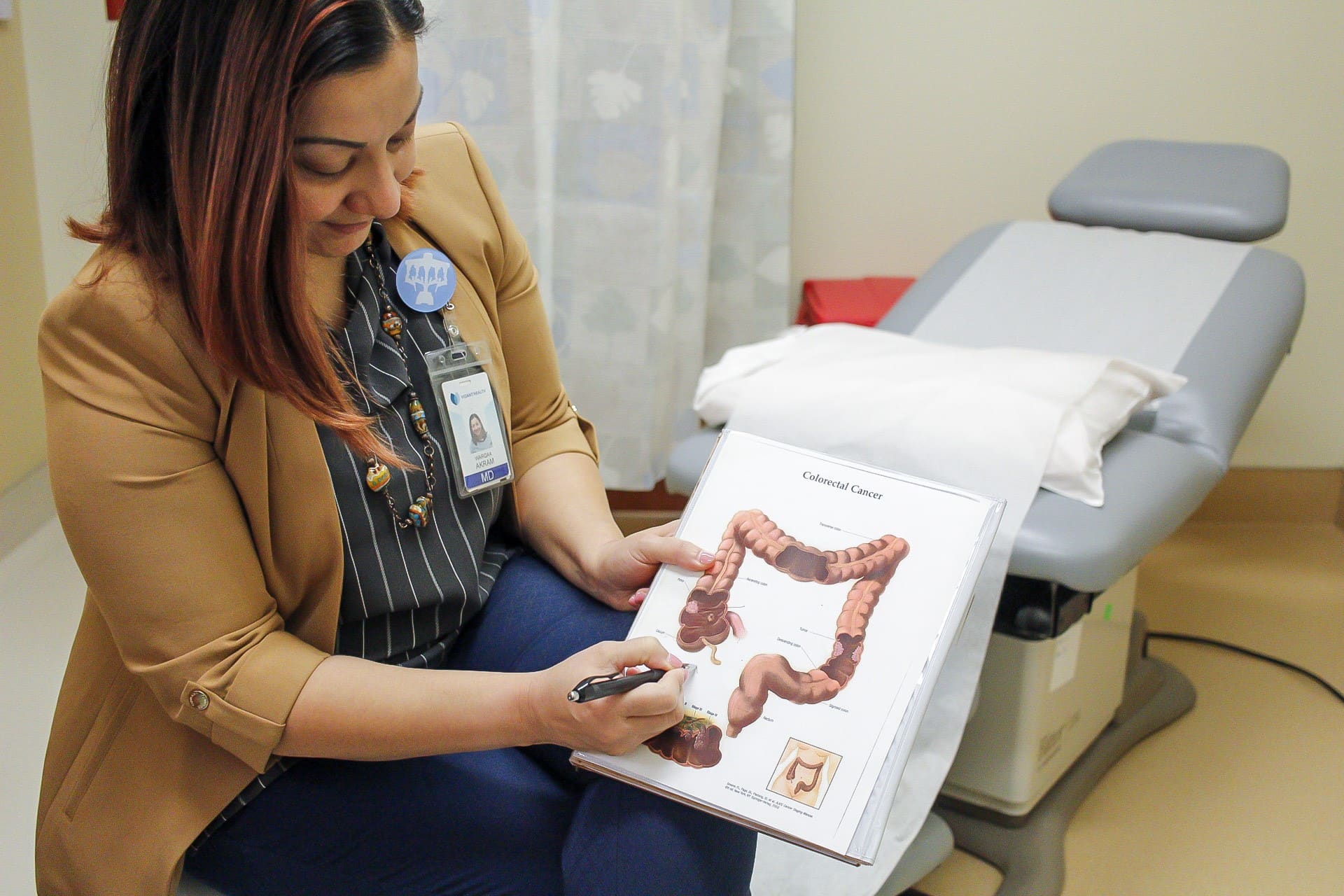Regardless of the world around us, cancer does not pause for anything. Colorectal cancer screenings have severely decreased during the COVID-19 pandemic, and doctors are worried this will lead to more cases of advanced stages of colorectal cancer.
In general, colorectal cancer starts as an overgrowth of the tissue in the colon, called a polyp. There are different types of polyps, some of which change into cancers in the future.
“We want to find out about colorectal cancer before there are any signs or symptoms,” said Dr. Warqaa Akram, colorectal cancer surgeon for ECU and Vidant Health. “We want to catch it when a person is healthy because colorectal cancer is very treatable when caught early. Some polyps are small and won’t give you many symptoms, if at all, when it starts.”

Providers aim to find polyps and remove them before they progress into cancer. More advanced tumors can cause bleeding and obstructions. That’s why doctors are recommending screenings five years earlier, at age 45. However, that age may be lower for those who are high-risk, meaning they have a close relative such as a parent or sibling who has been diagnosed with colorectal cancer.
“If you have a family history of cancer, we begin screenings at age 40 or 10 years before the diagnosis of a family member, whichever comes first,” said Dr. Akram. “For example, if the father was diagnosed at age 45 with colorectal cancer, children should begin screenings at age 35. If a father was diagnosed at age 60, children should begin screenings at age 40.”
Overall, the instance of colorectal cancer is decreasing, likely due in part to screenings. However, the incidence of colorectal cancer in younger people is on the rise. Although the reasons are not completely known, an increase of processed foods, poor diet and lack of exercise are all contributing factors. While the causes of colorectal cancer are unknown, and some are unmodifiable like genetics, some of the largest contributing factors are eating a diet high in processed foods and red meat. Experts encourage a high-fiber diet to help prevent cancerous polyps.
It is important to note that colorectal cancer disproportionately affects Black Americans more than any other race in the country. In eastern North Carolina, the incidence of cancer is 20 percent higher in African Americans than any other race, and the risk of death is higher by about 40 percent. Socioeconomic status and lack of access to health care are some of the reasons incidences in colorectal cancer are higher in the African American population.
“Knowing that younger people and the African American population are having higher incidences of colorectal cancer, it is very important to get regular screenings,” said Dr. Akram. “We know a lot about colorectal cancer, and it is a type of cancer we know how to treat and we know how to defeat. The earlier we catch colorectal cancer, the better the results and possibility of being cured.”
During the COVID-19 pandemic, colonoscopies decreased by 90 percent at Vidant Health.
“This is very alarming because incidences of more advanced colorectal cancer could be in our future in eastern North Carolina,” said Dr. Akram. “We are learning about less incidences of cancer and risking that people will present with more advanced stages of cancer.”
“I know no one wants to hear a cancer diagnosis, but thanks to early detection through screenings, colorectal is mostly preventable, treatable and often curable,” said Dr. Akram. “Colorectal cancer does not have to be a death sentence.”
For more information about the risks, prevention and screening resources for colorectal cancer, or if you do not have a primary care provider, please contact the Prevention Clinic at ECU Health Cancer Care at (252) 816-7475.